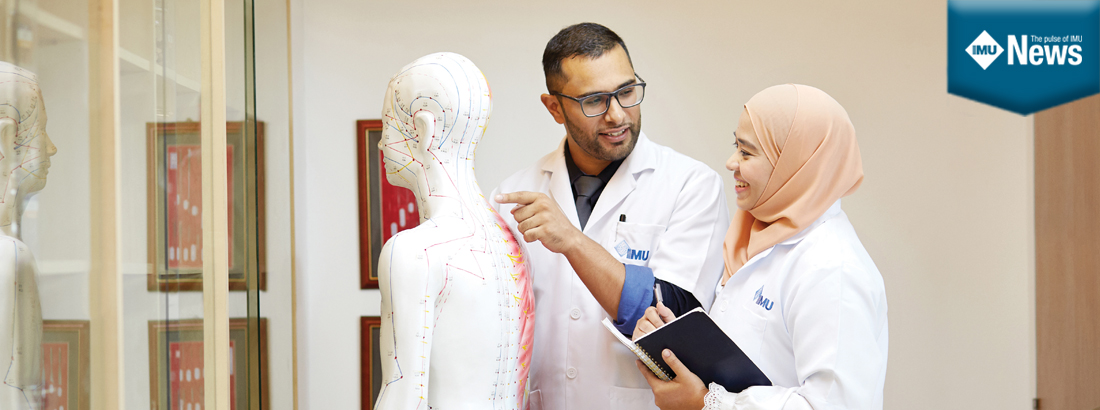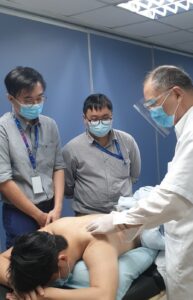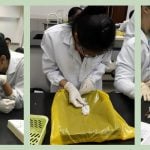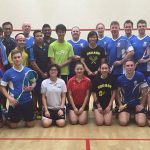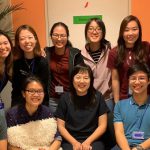Worldwide, university students affected by campus closures are responding to roll calls from their lessons online. With this sudden shift away from the classroom and residency training, some are wondering whether the adoption of online learning will continue to persist post-pandemic, and how such a shift would impact the teaching and learning in medical education such as Acupuncture. When the pandemic hit our shores in the first quarter of 2020, there was a distinctive rise of e-learning in the global education landscape, whereby teaching and learning is undertaken remotely and on digital platforms. IMU’s Master of Science in Acupuncture (MSA) programme which is blended learning centric has been tackling the challenge that came their way, leading to a massive shift in online learning operations. This programme’s students share on why Acupuncture become their choice of preference for postgraduate studies and how they cope with their online studies while working as full-time healthcare workers during these trying times. On her postgraduate studies journey, Dr Loh CH a medical doctor at a hospital in the northern region of Penang shared her story of enrolling into Master of Science in Acupuncture (MSA). She was confronted with dubious comments such as “Why Acupuncture?”, “I didn’t even know that Acupuncture is a master course!”, “Acupuncture? Poke people with needles one ah?” when she informed people of her decision to pursue the programme. Interesting, her answer will always be “Yes, the one that poke people with needles”, “Yes, this course is quite new in Malaysia”. Why acupuncture? She elaborated her disquieting experience of seeing patients come with complaints and presented with multiple symptoms, but investigation shows that everything is normal and no diagnosis nor any treatment plan can help these patients. She is helpless when she sees these patients slip into depression without being able to provide any alternative solution, until an event of a full recovery of benign essential blepharospasm from a close friend through acupuncture treatment shed her light to learn how she can approach disease differently. She added “I am really grateful for the opportunity to be able to learn and combine both western medicine and acupuncture into my practice. I believe that by combining both, we will be able to provide a better treatment outcome for my patients”. Likewise for Dr Gan CL, a medical officer from northern region of a district hospital in Perak, who recalled that her interest of acupuncture began to sow seed during her internship as a medical student at a Traditional Chinese Medicine clinic in Taiwan. She was attached to a pain clinic in her tenor of hoursemanship in Penang General Hospital where she witnessed many chronic pain and stroke-laden patients benefitting from acupuncture, that set the foundation of her special interest into pain control and stroke rehabilitation. She believes that acupuncture is an effective complementary treatment for many diseases especially in pain control and stroke rehabilitation.
| What does Our Students Say about Online Learning? | |
|---|---|
| Dr Loh CH | Online learning made her learning so much easier. She does not have to worry about travelling to KL every week to attend class. Instead, she just chills at home, sit on her couch and listen to the online lecture. She is grateful that the flexible blended learning model provides ample time for her to study, prepare for examination and write her assignment at her own space, a big relief when she is juggling between work and study in these trying times. She particularly accredited her online learning experience as a superb experience with the easily accessible learning materials and all recorded lectures at IMU’s e-learning platform, available to her anytime, anywhere on demand. She felt more relaxed to learn this way, as compared to her undergraduate days where her hand never stops jotting down all the notes. She further stated “I’m so afraid to miss out any points, because if that happened, I might not have to chance to learn about that certain topic anymore. But I think, I am so much more relaxed now, I can really concentrate and listen to the lecture and really understand them, and only start making my notes during revision”. |
| Dr Que JY, a medical officer working in a district hospital | Studying the programme is a brand-new experience of learning acupuncture – in a virtual way, including attending online class every Saturday and practical demonstration of acupuncture techniques through synchronous learning. He attributed the success of delivery to the advent of technology and infrastructure readiness of University’s e-learning environment. He shared the same on the availability of recorded lectures. This is an upside as he can replay and recap prior learnings at ease without worrying about missing anything out, as compared to attending a conventional class. He concluded that online classes are nothing less inferior than conventional classes. |
| Dr Ng WK, another medical doctor | His overall experience during the lockdown and online learning have been positive. He said that the support from the university has allowed his learning journey to be as smooth as possible. Lecturers were well prepared for the class and were quick to adapt to the new normal of teaching. Students were kept up to date at every stage regarding their learning schedule and last-minute restrictions imposed by the Malaysian government’s new SOPs. She believes online learning will continue to innovate and be a key part of the University’s learning model the way forward. |
| Dr Gan CL | She agreed that the new normal in learning brought its own challenges and adjustments. For her, the main challenge was maintaining the same levels of discipline to her studies as it fairly easy to get distracted by family and hectic work schedule in covering on call duties and COVID-19 wards. |
In a nutshell, students responded that these online sessions broke monotonous routine, were a good utilisation of time and the learning materials were easy to access. They felt motivated to read on those topics at their own convenient time convenient with easy access to materials and it had also helped them to plan their work-study flexibly.
Most frequent factor hindering learning is stated as the limitation on the number of practical sessions of insertion of needles and technique manipulation. Student had since only returned to campus once for Acupuncture practical session with stimulated patients due to MCO. The shortcoming will be addressed subsequently through remedial practical sessions when students are allowed to return campus eventually.
The COVID-19 pandemic has made us realise the importance of online training for our part-time postgraduate students. Apart from gaining knowledge, the present fluid situation revealed the impact of online learning on the morale of our students by creating a diversion from the ongoing pandemic situation. We conclude that online teaching is feasible, cheap and must be made a part of the postgraduate training going forward beyond the prevailing lockdown.




